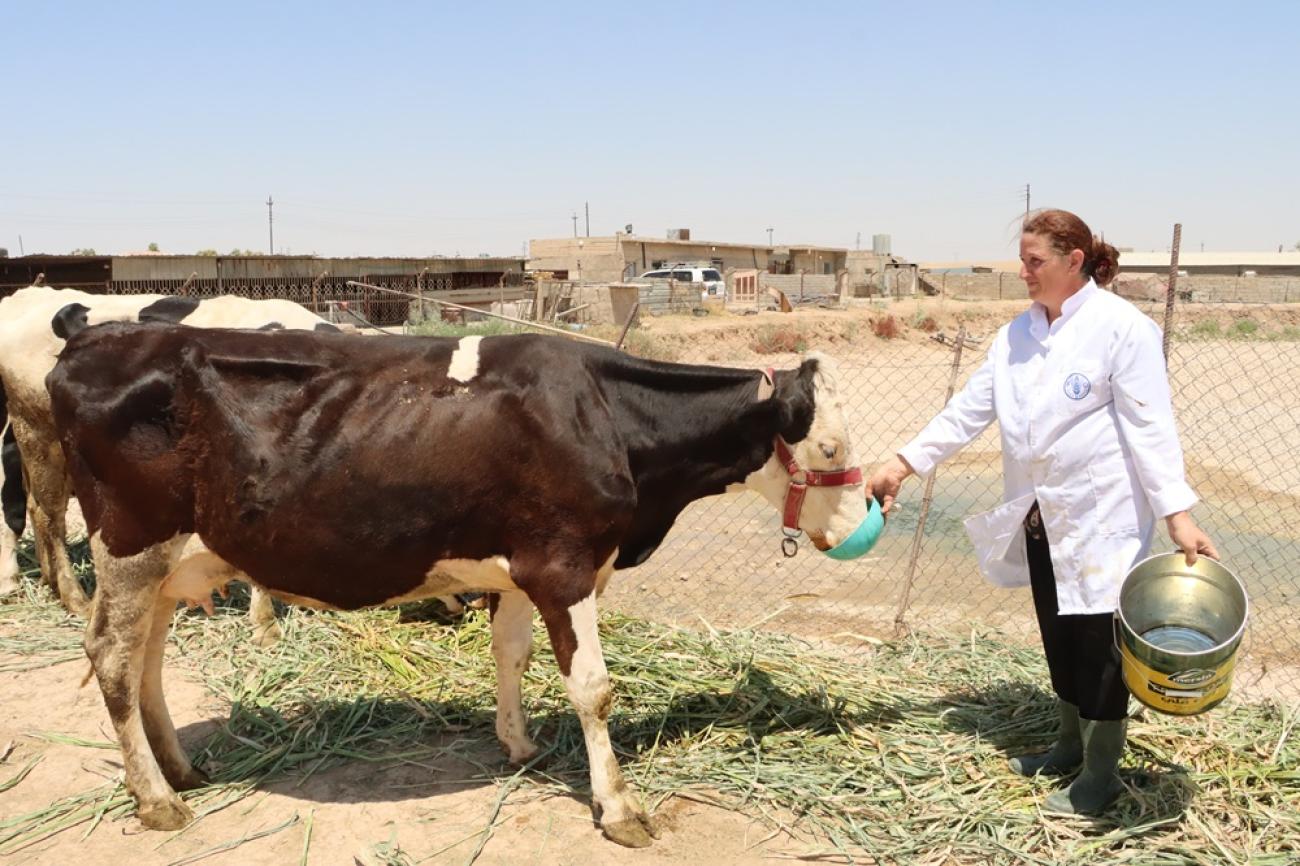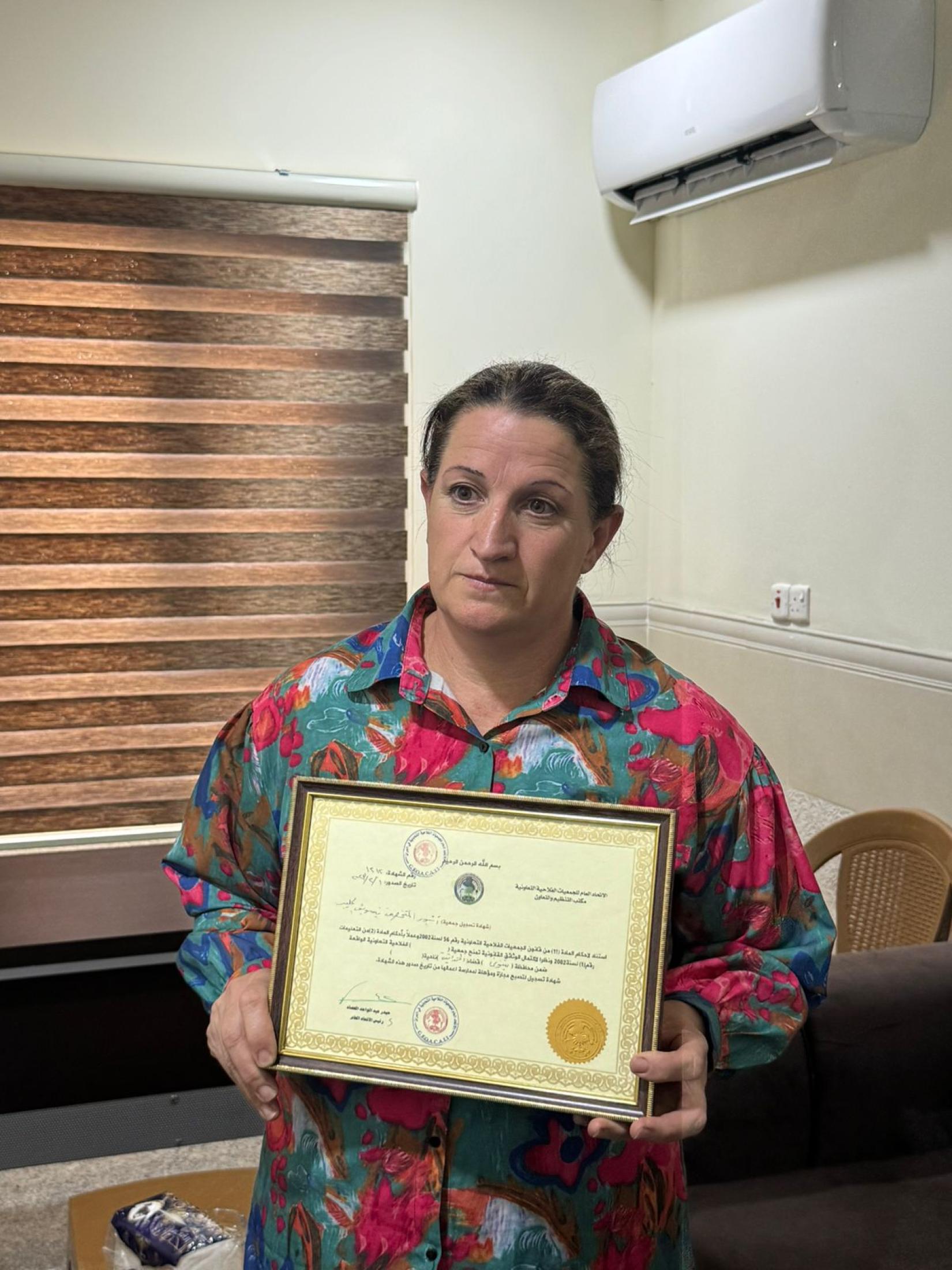Cooperatives of Hope: Inside Nineveh’s Dairy Revival

Support to Agricultural Livelihoods of Rural and Peri-Urban Returnees and Communities in Nineveh Governorate, Iraq
The "Support to Agricultural Livelihoods of Rural and Peri-Urban Returnees and Communities in Nineveh Governorate, Iraq" project was implemented under the FAO’s initiative, in cooperation with the Ministry of Agriculture (MoA) and funded by the European Union (EU). This project aimed to rebuild agricultural livelihoods in Nineveh by supporting rural and peri-urban returnees, helping them restore their farms and create sustainable income sources. Through this initiative, farmers have come together, organized, and found new strength in cooperation.
One of these farmers is Intissar Jamil (Om Mustaha), from Qaraqosh-Al Hamdania. She shares with us her journey of resilience and transformation, and how her life has changed through the cooperative movement.
"My name is Intissar Jamil (Om Mustaha), and I’m one of more than one hundred farmers—men and women—who have come together to form three cooperatives in Nineveh: Ashur, Um Al-Rabeein, and Al-Hadbaa. Together, we are rebuilding what conflict and displacement tried to destroy: our farms, our livelihoods, and our sense of community."
Our journey started long before the official registration of our cooperatives in 2023. We were working in isolation—growing fodder here, producing milk there—but without coordination or structure. Every household was on its own, and every season was a struggle. Water was scarce, inputs expensive, and markets unpredictable.
Then something shifted. We realized that we’re stronger when we work together. So, we organized. We got trained. We got legal recognition. And most importantly, we started trusting each other again.
Today, each of our cooperatives has more than 40 members with official ID cards and shared responsibilities. We grow our own green fodder, raise our livestock using improved practices, and collect and process the milk ourselves. We make dairy products like cheese, yogurt, and ghee, and sell them in nearby villages and markets.
When I walk into our collection center each morning, I no longer feel like just a small-scale farmer—I feel like a businesswoman, a community member, and a provider.
This isn’t just about money. Yes, our incomes have improved—many of us now make regular sales, and we’re investing back into our farms. But the real transformation is what you can’t see in numbers. Women like me now have a seat at the table. We speak, we vote, we lead. Young people are staying in the village, choosing to work the land rather than leave. Neighbors who barely spoke before now run businesses together. We’ve created something powerful—a local solution to local problems.
Farming in Nineveh isn’t easy. We face water shortages, degraded soil, and a fragile economy. But these cooperatives have given us tools—and more importantly, confidence. When we face a bad season, we face it together. When someone falls behind, the group steps in. Our strength isn’t just in our products—it’s in our solidarity.

We are not victims. We are survivors, entrepreneurs, and innovators. We may live far from the cities, but we are at the heart of Iraq’s food system. And we’re proving that with a little structure, some knowledge, and a lot of trust, rural communities can not only recover—they can thrive.
If you ever visit Nineveh, come see us. Taste our cheese, walk through our fields, and meet the people who refused to give up.
We’re not just producing milk—we’re producing hope.



